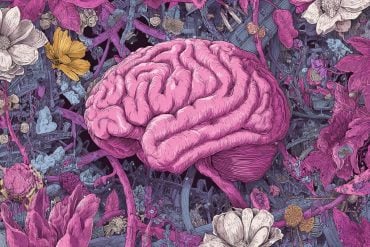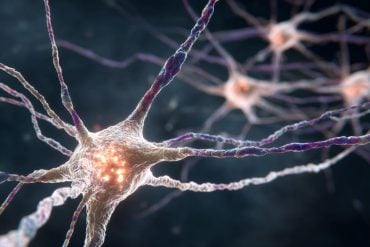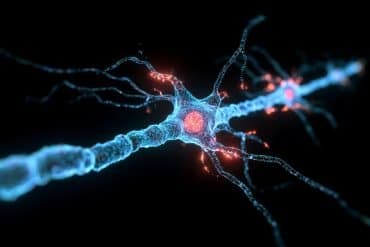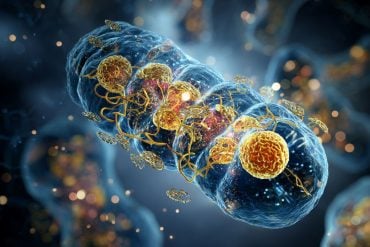Summary: According to researchers, after a night of drinking, shy people are more likely to be anxious that those more extroverted.
Source: University of Exeter.
Very shy people are more likely to suffer “hangxiety” – anxiety during a hangover – than their extrovert friends, new research shows.
In a study of almost 100 social drinkers with either high or low levels of shyness, drinking about six units of alcohol slightly decreased anxiety in highly shy people.
But the next day, this slight relaxation was replaced by a significant increase in anxiety – a state of “hangxiety” among the shy drinkers.
The researchers, from the University of Exeter and UCL, also found a strong link between this hangxiety and higher scores on the AUDIT test which is used to identify alcohol use disorder (AUD) in highly shy people.
“We know that many people drink to ease anxiety felt in social situations, but this research suggests that this might have rebound consequences the next day, with more shy individuals more likely to experience this, sometimes debilitating, aspect of hangover,” said Professor Celia Morgan, of the University of Exeter.
“These findings also suggest that hangxiety in turn might be linked to people’s chance of developing a problem with alcohol.”
First author Beth Marsh, of UCL, said: “While alcohol use is actually going down, there are still 600,000 dependent drinkers in the UK.
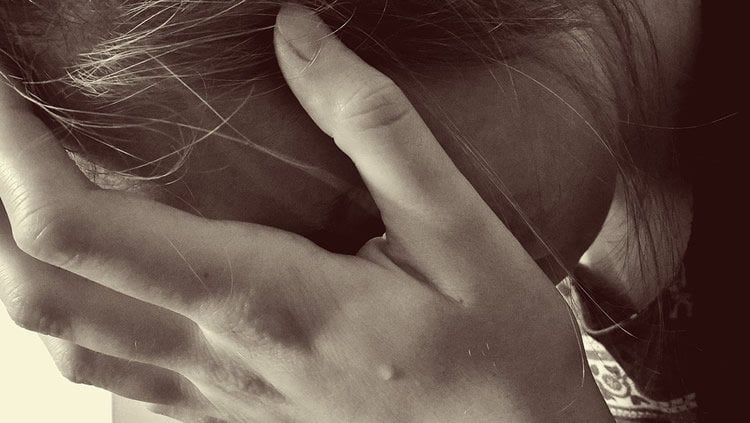
“And while statistics show that, overall, people are drinking less, those with lower levels of health and wellbeing – perhaps including people experiencing anxiety – are still often doing so.”
Professor Morgan added: “It’s about accepting being shy or an introvert. This might help transition people away from heavy alcohol use. It’s a positive trait. It’s OK to be quiet.”
Participants in the study, who were tested at home, were assigned at random either to drink or to stay sober.
Baseline measures of shyness, social phobia and AUD were taken, and anxiety levels were tested again during the evening and the following morning.
Source: University of Exeter
Publisher: Organized by NeuroscienceNews.com.
Image Source: NeuroscienceNews.com image is in the public domain.
Original Research: Abstract for “Shyness, alcohol use disorders and ‘hangxiety’: A naturalistic study of social drinkers” by Beth Marsh, Molly Carlyl, Emily Carter, Paige Hughes, Sarah McGahey, Will Lawn, Tobias Stevens, Amy McAndrew, and Celia J. A. Morgan in Personality and Individual Differences. Published December 6 2018.
doi:10.1016/j.paid.2018.10.034
[cbtabs][cbtab title=”MLA”]University of Exeter”‘Hangxiety’ Higher in Shy People.” NeuroscienceNews. NeuroscienceNews, 13 December 2018.
<https://neurosciencenews.com/hangxiety-shy-10341/>.[/cbtab][cbtab title=”APA”]University of Exeter(2018, December 13). ‘Hangxiety’ Higher in Shy People. NeuroscienceNews. Retrieved December 13, 2018 from https://neurosciencenews.com/hangxiety-shy-10341/[/cbtab][cbtab title=”Chicago”]University of Exeter”‘Hangxiety’ Higher in Shy People.” https://neurosciencenews.com/hangxiety-shy-10341/ (accessed December 13, 2018).[/cbtab][/cbtabs]
Abstract
Shyness, alcohol use disorders and ‘hangxiety’: A naturalistic study of social drinkers
Social anxiety disorder (SAD) has been related to alcohol use disorder (AUD). Shyness can be considered a subclinical analogue of SAD, yet there is little research into the effect of alcohol on anxiety levels in highly-shy individuals. This naturalistic study investigated acute and sub-acute effects of alcohol in high and low shy social drinkers. 97 individuals were tested at home and assigned to either consume alcohol to normal levels (n = 50) or to remain sober (n = 47). Baseline measures of AUD symptoms, shyness and social phobia were taken. Measures of state anxiety were taken at baseline, following a period of alcohol consumption or sobriety, and the following morning. Marginally decreased acute anxiety resulting from alcohol consumption in high shyness was observed. A significant increase in anxiety the day following drinking was observed in highly-shy participants. There was a significant correlation between anxiety elevation on the second day and AUDIT scores in highly-shy participants. This study suggests anxiety during hangover is linked to AUD symptoms in highly-shy individuals, providing a potential marker for increased AUD risk, which could inform prevention and treatment.



